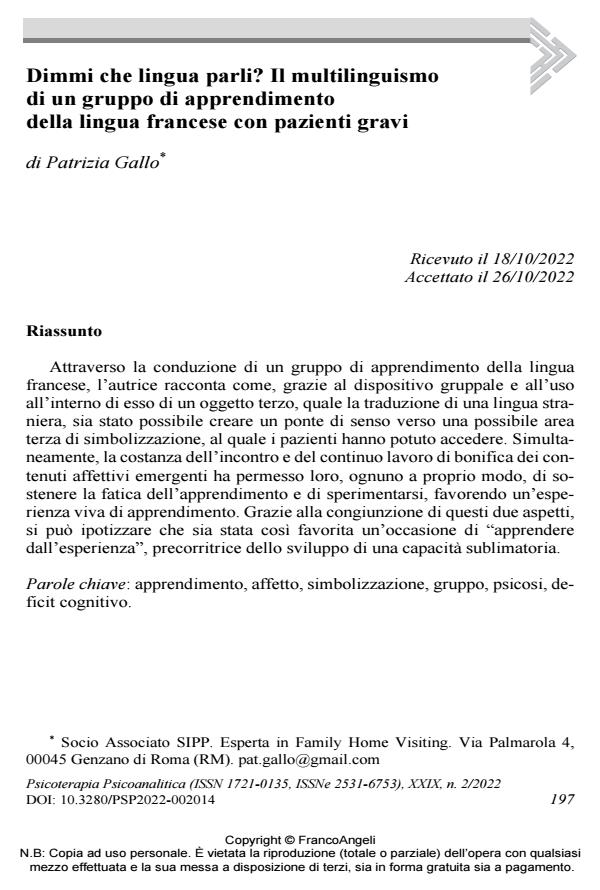Tell me what language do you speak? The multilingualism of a learning group of the French language with severe patients
Journal title PSICOTERAPIA PSICOANALITICA
Author/s Patrizia Gallo
Publishing Year 2022 Issue 2022/2
Language Italian Pages 10 P. 197-206 File size 148 KB
DOI 10.3280/PSP2022-002014
DOI is like a bar code for intellectual property: to have more infomation
click here
Below, you can see the article first page
If you want to buy this article in PDF format, you can do it, following the instructions to buy download credits

FrancoAngeli is member of Publishers International Linking Association, Inc (PILA), a not-for-profit association which run the CrossRef service enabling links to and from online scholarly content.
Through the conduct of a French language learning group, the author tells how, thanks to the group device and the use within it of a third object, such as the translation of a foreign language, it was possible to create a bridge sense towards a possible third area of symbolization, to which the patients have been able to access. Simultaneously, the constancy of the encounter and the continuous work of reclamation of the emerging affective contents allowed them, each in their own way, to sustain the fatigue of learning and to experiment, favoring a living learning experience. Thanks to the conjunction of these two aspects, it can be hypothesized that an opportunity to "learn from experience" was thus favored, a precursor to the development of a sublimation capacity.
Keywords: learning, affect, symbolization, group, psychosis, cognitive deficit
Patrizia Gallo, Dimmi che lingua parli? Il multilinguismo di un gruppo di apprendimento della lingua francese con pazienti gravi in "PSICOTERAPIA PSICOANALITICA" 2/2022, pp 197-206, DOI: 10.3280/PSP2022-002014